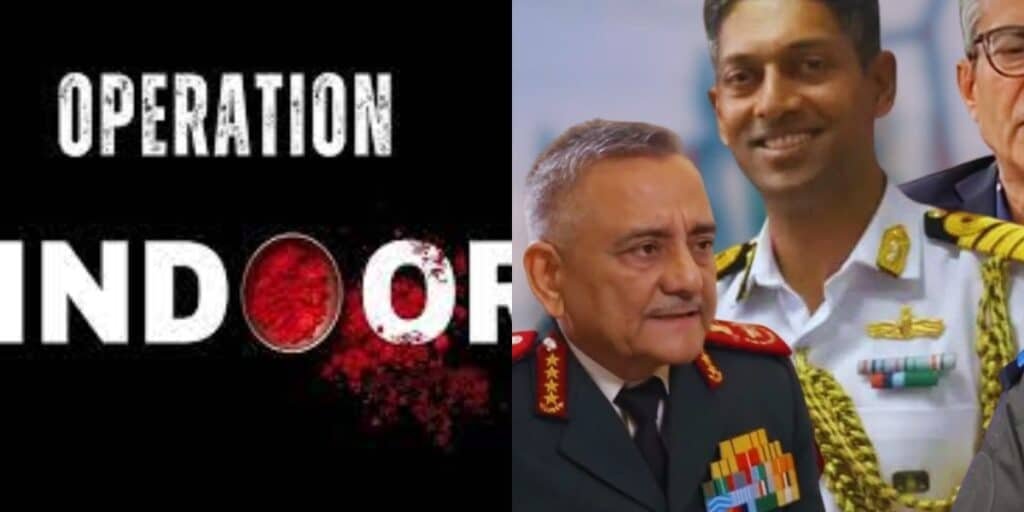A recent report by The Wire has shed rare and significant light on the Indian Air Force’s (IAF) aerial losses during the recent military conflict between Pakistan and India. Based on official statements from four senior Indian defence officials, the article exposes a pattern of guarded admissions, subtle contradictions, and a growing acknowledgement of political constraints that shaped the course of the conflict.
Unlike previous wars with Pakistan, where losses were either formally acknowledged or detailed in parliamentary reports, the Modi government has so far refrained from releasing specific information. As The Wire notes, “this is the first time the Indian government has appeared reluctant to admit its losses.”
Air Marshal A.K. Bharti: First Official Acknowledgement
In a May 11 press briefing, Air Marshal A.K. Bharti, Director General of Air Operations, responded to a direct question on IAF losses with a terse confirmation:
“Losses are a part of combat… All our pilots are back home.”
As The Wire points out, this was “the first official acknowledgement of losses suffered by the IAF on May 7 but without specifying numbers or types of aircraft.” His remarks set the template for subsequent statements—brief, non-specific, yet significant.
General Anil Chauhan: Losses Admitted, Focus Shifted
Chief of Defence Staff (CDS) General Anil Chauhan, speaking to Bloomberg TV on May 31, made the most explicit admission to date.
“What is important is that – not the jet being down, but why they were being down… Absolutely incorrect [regarding six fighter jets lost]. That is not the information which I said is important. What is important is why they were down. That is more important for us. And what did we do after that. That is more important.”
According to The Wire, Chauhan’s remarks were notable for “confirming that IAF fighter jets were lost but he also refused to specify numbers.” More importantly, he revealed that the IAF “was handicapped for the next two days in its flying operations,” a rare operational admission from India’s top military official.
Captain Shiv Kumar: Political Leadership Constrained IAF Operations
In what is arguably the most politically sensitive admission, Captain (IN) Shiv Kumar, India’s Defence Attaché to Indonesia, spoke at a university seminar in Jakarta on June 10:
“I may not agree that we lost so many aircraft, but I do agree we did lose some aircraft. …The Indian Air Force lost fighter jets to Pakistan on the night of May 7, 2025 only because of the constraint given by the political leadership to not attack the military establishment or their air defences.”
As The Wire notes, “this admission not only confirms losses but also highlights the influence of political control on military operations, a point that undermines the claims of the Modi government of having given complete operational freedom to the armed forces.”
Defence Secretary R.K. Singh: Denial with Implicit Confirmation
In a July 8 interview to CNBC-TV18, Defence Secretary R.K. Singh appeared to respond to the emerging narrative:
“You have used the term Rafales in the plural, I can assure you that is absolutely not correct. …Pakistan suffered losses many times over India in both human and material terms and more than 100 terrorists.”
While denying the loss of multiple Rafale jets, Singh’s remarks “implicitly accept that the IAF suffered losses on the night of May 7,” The Wire observes, suggesting an attempt to reshape public perception amid growing scrutiny.
A Pattern of Selective Disclosure
The Wire article notes that these statements, taken together, “reflect the limited flow of information in India’s official messaging on IAF losses in its clash with Pakistan.” This contrasts sharply with previous India-Pakistan conflicts like those in 1965, 1971, or Kargil, where loss disclosures were either publicly acknowledged or accompanied by official documentation.
The reluctance to specify the extent of damage or aircraft lost coupled with hints of political micromanagement, has sparked a quiet but growing debate within strategic circles about civil-military dynamics and the cost of strategic restraint.
As The Wire concludes, the government’s reluctance to publicly admit losses while senior officials gradually reveal fragments of the truth marks a “new era of controlled disclosures” in Indian military communication.






